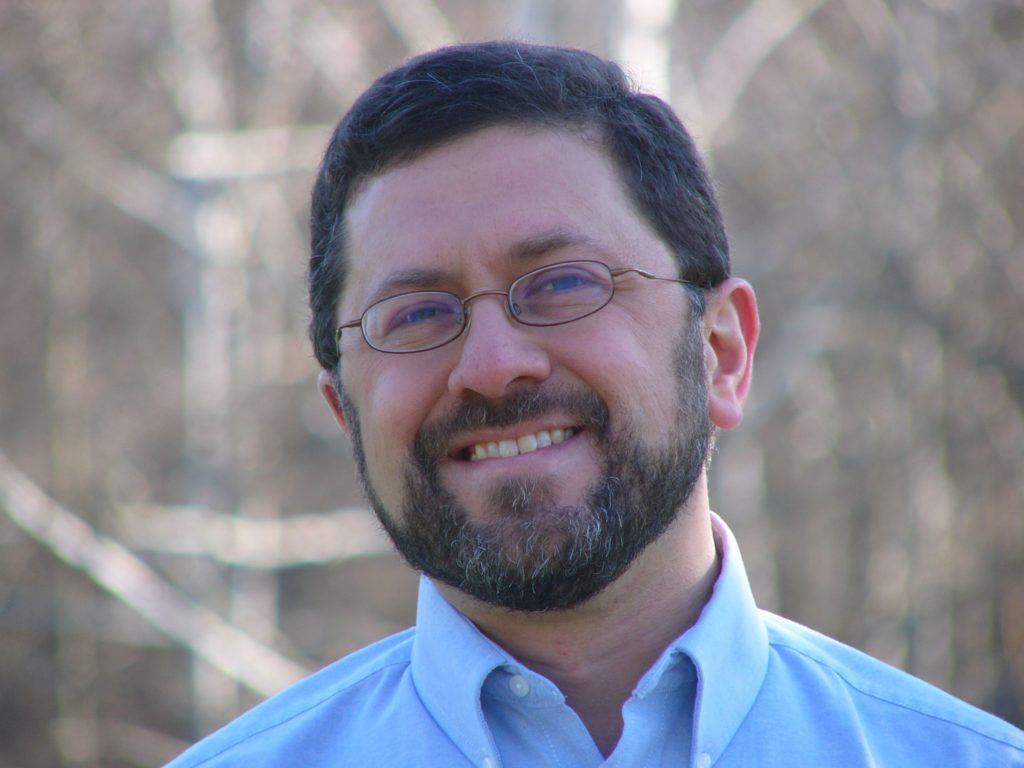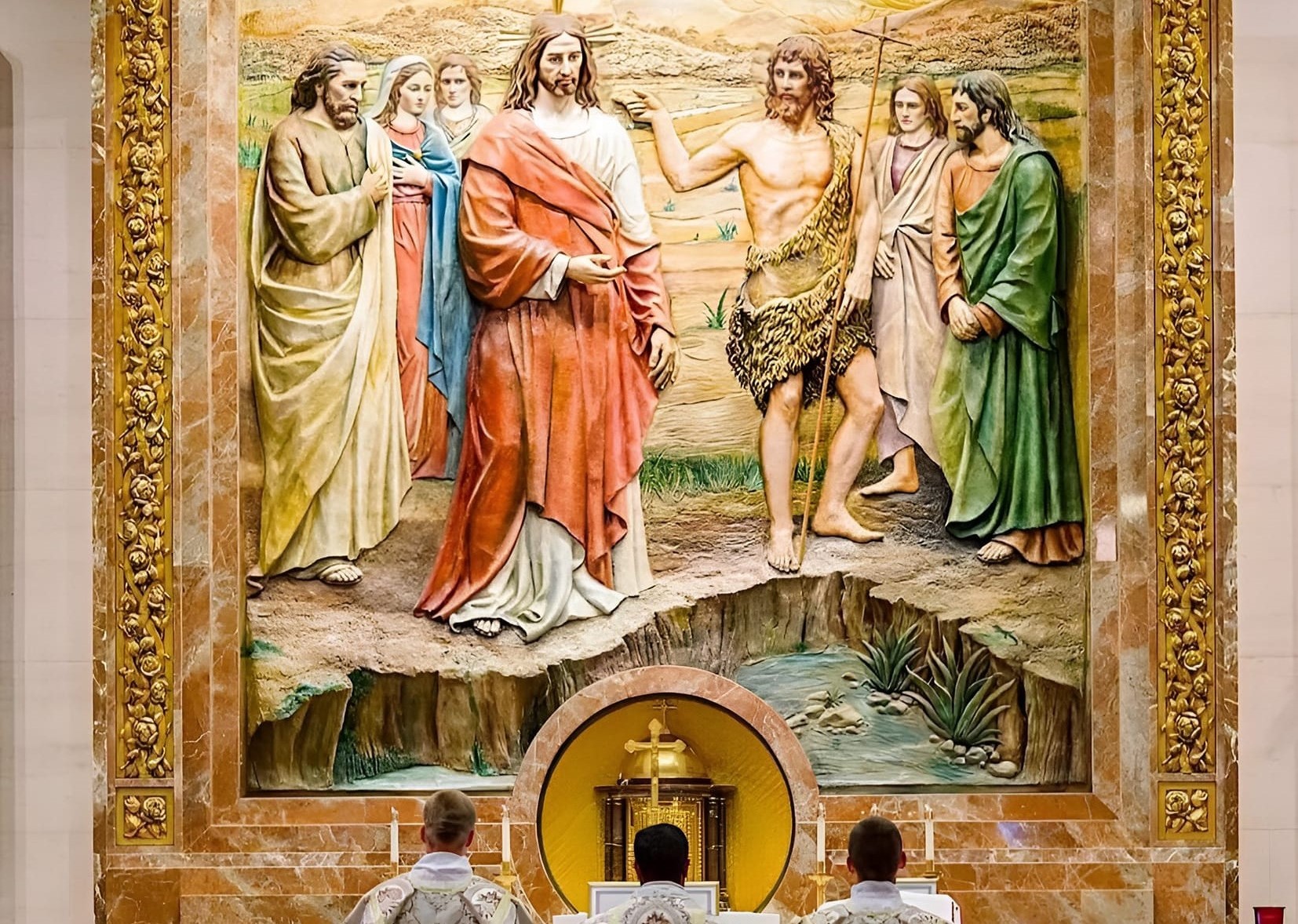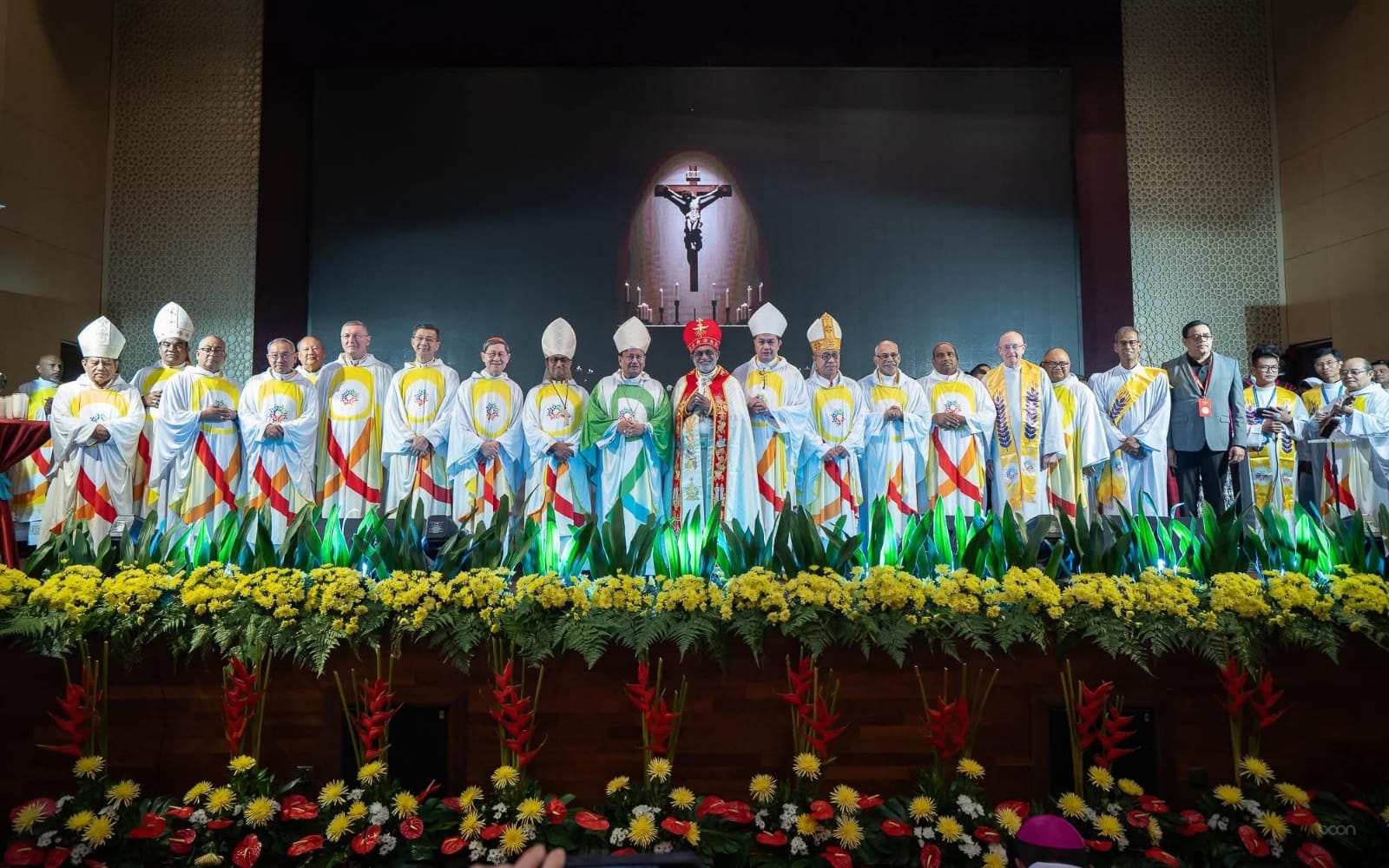Zachary Houle from medium.com.
– Aurelio Porfiri
For everyone dealing with Patristics, the American scholar Mike Aquilina is certainly a familiar name. He is the author of countless books on early Christianity and Church Fathers. Recently he has published a book called How the Choir Converted the World. Through Hymns, With Hymns, And In Hymns (2016 Emmaus Road), a very enjoyable read for all those who want to understand more about the roots of Church music and why certain problems we are facing today, like profane music in worship, are not so new after all.
How does a professor of Patristics find time to write a book about Church music?
I’m not a professor. I’m a writer. Books are what I have time for! I got interested in the hymns of the ancient Church as I was preparing the third edition of my book The Fathers of the Church. I noticed that most of the chapters I’d added were related to the writing of hymns. It made me stop and think. The changes in the book really tracked a change in the way I thought about early Christianity. History is usually told by intellectuals, who present it all as intellectual history. So we come to see the Church’s story as a succession of arguments, councils, decrees, and creeds. I think our life is far richer than that. Sometimes the events are borne along by a popular song. Music has a profound influence on what we believe, what we remember, how we love, and how we worship.
Among other books you mentioned as important in your research, you listed Eric Werner’s The Sacred Bridge. This book, which some scholars find controversial, mentions the Jewish influence on Christian worship, which is a “hot” topic. Today other scholars prefer to talk of mutual influence between Christian and Jewish worship. What is your view on this?
Well, both are correct. It depends on what we mean by Judaism. Jesus Christ was born into the religion of Israel. All of our forms of worship took their origin from the rites he knew in his earthly life, and most of those rites included music. There is evidence of singing in the liturgies of the Temple, the synagogue, and the Jewish home (at Passover, for example). When the Temple fell in 70 A.D., the event was catastrophic and forced a re-thinking of the future of the religion of Israel. The scholar Alan Segal said that Christianity and Rabbinic Judaism emerged at this time as “twin sons,” like Rebecca’s children. From then on we can speak of mutual influence.
You wrote: “The Fathers knew the power that music had over our minds—power over thoughts and feelings—and they respected that power. And they used that power to maximum effect. They knew that beautiful music could change the world. It makes us remember, it moves us to virtue, it heals us, and it makes us one.” But the Fathers also knew that music can pervert the world, and they warned against the danger of unsuitable music, especially profane and pagan ones. Can you expound on this?
Read the Old Testament. We can see that the prophets were wary of music. Why? Because prostitutes used it to advertise their services. Because pagan temples used it to incite idolaters to take part in orgies. The worshipers of Moloch used loud, frenzied music to drown out the screams of the children they sacrificed. Music had all kinds of shady associations in the ancient world, as it does today. Musical forms and styles, then as now, come with all kinds of emotional and moral baggage. Thus, some of the Fathers — in various times and places — banned particular instruments, or female voices, or techniques of trilling and such. At other times, however, other Fathers allowed these things. A lot depended on the cultural context and what the instruments or techniques meant in that context.
“The prophets are preceded by a fairly large band of musicians not just because they make a better show that way, but because Israelite prophets often demanded music before they could prophesy.” What is the connection between music and prophecy?
We can see in 2 Kings, chapter 3, that Elisha required musical accompaniment before beginning to prophesy before the King of Israel. It seems he needed music to bring him into a state where he could receive the word of the Lord. It is likely that other Old Testament prophets worked in a similar way. If you look through the prophetic books, you’ll see that the oracles preserved in them are almost always delivered in verse, which was probably sung or recited to music.
Some scholars think that psalmody came into conflict with hymnody in the first two or three centuries, because hymnody was often adapted to pass “alternative messages” that departed from official orthodoxy. What do you think?
It’s hard to say, because we don’t have as much documentary evidence as we’d like. It’s clear, though, that the Psalms were well known and loved from the earliest days of the Church. They are the subject of much preaching and commentary. They’re quoted often. And I’ll bet that’s because they were familiar from congregational singing. The heretics did indeed use hymns to influence congregations and fill their minds with false doctrine. The Arians did this exceedingly well. Arius himself coined slogans and set them to catchy tunes that were already popular. So his heresy became like the ad jingle you can’t get out of your head. But God used even these setbacks for the good of the Church. The great hymn writers of the fourth century — Hilary, Ambrose, and Ephrem — were roused to take up the art because they saw the success of Arian hymnography. It’s as if they woke up and said: Why should the heretics get all the good songs?
In the letters of Saint Paul there are passages that some exegetes consider to be quotations from early Christian hymns. Do you share this view?
Yes, they seem to follow the conventions of Greek poetry of that time, and poems were often recited to musical accompaniment. In his letters, Saint Paul speaks of hymns and other sung musical forms — psalms and spiritual songs. And in the Acts of the Apostles we find him singing hymns while in prison. It would be normal today for a preacher or a president to casually quote a popular song or hymn. It was normal in Paul’s day, too.
I think that the “Letter to Marcellinus” by St Athanasius is one of the most beautiful patristic witness on the use of Psalms. What do you think of that?
I agree. It’s one of the earliest documents to discuss the Psalms as devotional material. It’s also one of the earliest sustained treatises on prayer. And of course it’s a testimony to the power of music in the development of a Christian.
Saint Augustine and music. Can you tell us something about this?
Saint Augustine feared music because he knew its power. When he was young, before his conversion, he was addicted to music. He felt that it bewitched him and incited his passions. For those reasons he distrusted it. Later in life, however, he made his peace with music and recognized that it could give glory to God, and that it could be directed to incite passions for good. It helped, I’m sure, that he had lived in the parish run by Saint Ambrose, the great writer of hymns. Augustine’s sainted mother, Monica, loved the hymns of Ambrose, and after her death Augustine consoled himself by singing these tunes. Precisely because of his personal development, Augustine became an important figure in the history of Christian thinking about music. In a systematic, philosophical way he legitimized devotional music — and allayed the fears of bishops who still might worry about music’s pagan associations.
One of the chapters of your book is called “Why Catholics can’t sing?”, a title of another quite well known book by Thomas Day. So, why?
I wanted the title to be a winking tribute to Thomas Day. He was the first, back in the 1980s, to kick up sand among pastoral musicians and ask why we weren’t doing better in our parishes — especially given the richness of our heritage. The title suits my chapter on Saint Ephrem of Syria. He was a deacon who lived in Edessa, a major city and cultural crossroads. In Edessa all kinds of religions competed for the attention of the ordinary folks. It frustrated Ephrem that the false religions had better music than the true one. So he composed hymns, and he organized choirs, and he gave performances right in the middle of the marketplace. He made sure that his music was better than anything else available, and then he made sure that everyone would hear it. God deserved nothing less than the best, and God certainly deserved a hearing. This was not only good worship. It was prodigiously effective evangelization.
What is the most important message we can receive from Church Fathers when talking about music?
Saint Jerome said it well: SING! Even if you can’t quite carry a tune, sing anyway. Put away your pride. Give yourself over to the power of the music and the words. Saint Basil speculated that few of his parishioners would remember the Gospel when they went home, and fewer still would remember his homily — but they’d all walk out whistling the tune to the Responsorial Psalm, and so they’d be praying. That’s the message.


 Follow
Follow


